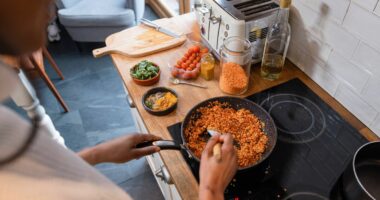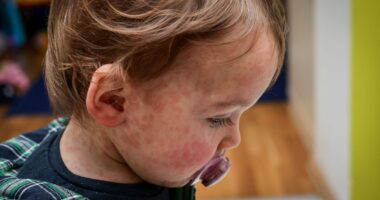Share this @internewscast.com
A Chinese scientist accused of illegally transporting biological materials in Michigan entered a guilty plea on Wednesday. However, she will not serve additional jail time beyond the five months she has already been detained.
Yunqing Jian, a former researcher at a University of Michigan laboratory, is set to be released and will face swift deportation. The presiding judge described the situation as an “unusual case” involving a “highly accomplished researcher.”
Jian, 33, was taken into custody in June. She was alleged to have conspired with her boyfriend to cultivate and study a hazardous fungus within a university lab. The pathogen, known as Fusarium graminearum, poses a threat to crops such as wheat, barley, maize, and rice. Zunyong Liu, her boyfriend, was apprehended at a Detroit airport in 2024 while in possession of small samples.
In their home country of China, Jian and Liu specialized in researching F. graminearum, a fungus that can be found in U.S. agricultural fields depending on weather and crop conditions. Importing this pathogen into the United States without a government-issued permit is illegal, as such permits come with stringent regulations—a requirement that the university lacked.
Assistant U.S. Attorney Michael Martin discussed the potential consequences, warning of “devastating harm,” but he did not provide further specifics.
“While I don’t have evidence of malicious intent on her part,” Martin told the judge, “I also lack evidence that she was acting for the greater good of humanity.”
Roger Innes, an Indiana University expert who looked at the evidence for Jian’s attorneys, said there was “no risk to US farmers, or anyone else”, or any intent to create a more virulent strain. He noted that Liu likely wanted to work with a unique microscope at the lab.
Martin asked for a two-year prison sentence for Jian – four times longer than a maximum six-month term under sentencing guidelines. US district judge Susan DeClercq settled on five months in jail, with time already served by Jian.
Jian, wearing chains around her ankles and waist, apologized but said little, relying instead on a letter filed with the court.
“I did not follow the rules because I was under pressure to proceed with research and produce results,” Jian wrote. “The research was not to harm anyone, but instead to find ways to protect crops from disease.”
The conspiracy charge against Jian was dropped in exchange for a guilty plea to smuggling and making false statements to investigators. She acknowledged that she had asked a colleague in China to send biological material hidden in a book in 2024. The book was intercepted by US agents.
Liu was also charged in the investigation, but he is now in China and is unlikely to return to the US.
















